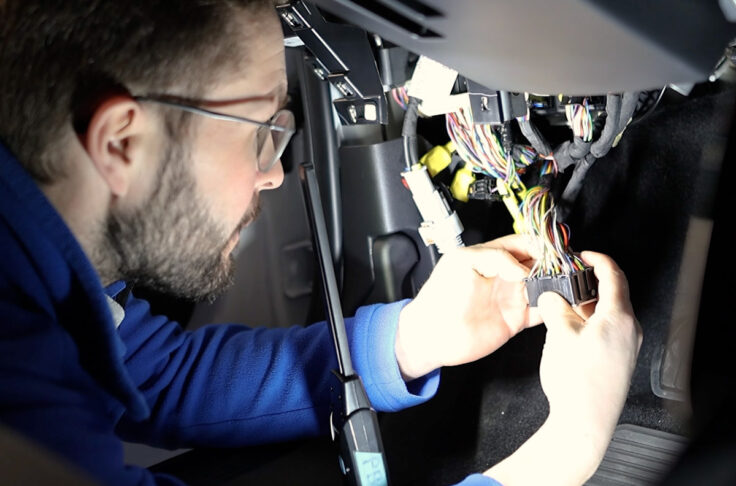Carsharing in Residential Developments
Summary
With parking being a high-cost item in residential developments, it may make sense to offer alternative, more affordable transportation options instead – like a resident-only carsharing service.
On average, one parking space can cost a developer $20,000-$45,000 to build1. Cities also have minimum parking ratios that require developers to construct a certain number of parking spots per unit. Historically, developers have built according to these guidelines, with the resulting costs passed through to the residents in the form of higher ownership costs or higher rental rates. With the recent growth of mobility options like rideshares or carshares, the demand for personal parking spaces have decreased and many residential buildings are faced with overbuilt and underutilized parking facilities.
RealHomes Management Corporation (RHMC) develops and builds to support the Greater Victoria Rental Development Society’s mandate for affordable housing. When RHMC started planning for their next development, they knew from experience and research that the need for parking spaces would be low. Part of building affordable housing involved looking at ways to build livable, quality homes without sacrificing crucial amenities.
Studies found those who are looking for affordable housing are less likely to own a vehicle, thereby creating wasted space with excess supply of parking1. With mandatory minimum parking requirements of 1.3 – 1.4 parking spots per rental unit, RHMC would potentially need to allocate up to $2.6 million to parking that would not be well used by tenants at their new building, Azzurro2.
To manage cost effectiveness, RHMC made an application for a variance in the minimum parking requirements, proposing to reduce the number of spots mandated from 96 to 28 and offering residents access to a pool of two shared vehicles. RHMC knew this proposal would benefit their future residents based on studies which show carsharing programs allow households to reduce private vehicle ownership and usage3.

Originally, RHMC approached local carsharing operators to discuss the feasibility of having carsharing vehicles at the development. However, factors such as being in a transit-oriented area with a high walkability score were not met; the neighbourhoods RHMC was building in did not fit the ideal profile for these operators. In addition, RHMC preferred to have vehicles exclusively for its residents, whereas carsharing operators typically need the vehicles to be shared with its membership base. As a result, RHMC shifted their approach and created their own carsharing program.
Together with INVERS, RHMC created their own carsharing program to meet the mobility needs of its tenants. With this solution, RHMC received authorization from the city to build a reduced number of parking spaces. Even after factoring in the cost of the carsharing technology, RHMC estimates they saved $2 million dollars by building less parking spaces.
“We are pleased with our success in saving on avoidable costs such as parking, further making our development process more economical and strengthening our mandate towards affordable housing. People’s needs are changing and we are happy for the opportunity to adapt to this dynamic environment” – Alanna Holroyd
With the rising need of affordable housing, making mobility equitable, improving land use, and decreasing congestion, RHMC is building the way towards a more livable community. RHMC encourages other developers to take control of unnecessary costs like parking and reinvest those costs into more beneficial features like common spaces and greenery. When it comes time to apply for the city permit, they recommend the following:
- Provide alternatives to how tenants will get around. Can the expenses saved be used towards subsidizing other transportation options such as a carshare for the building?
- Create relationships with city councillors who support a reduction in parking. They can be key resources on how to better present the proposal
- Clearly identify the targeted tenant and prove the actual need for parking will be less than the mandated requirements
As cities of all sizes are continuing to grow, developers need to be innovative in their approach to building new housing, and cities need to develop new policies to adapt to changing lifestyles. With technology developing at a rapid pace, there isn’t a shortage of capabilities or competencies to support any ideas that will bridge the gap between housing affordability and mobility needs.
References
- Metro Vancouver – Apartment Parking Study
- City of Victoria – Summary of Proposed Parking Rates
- City of Toronto – Zoning Requirements


